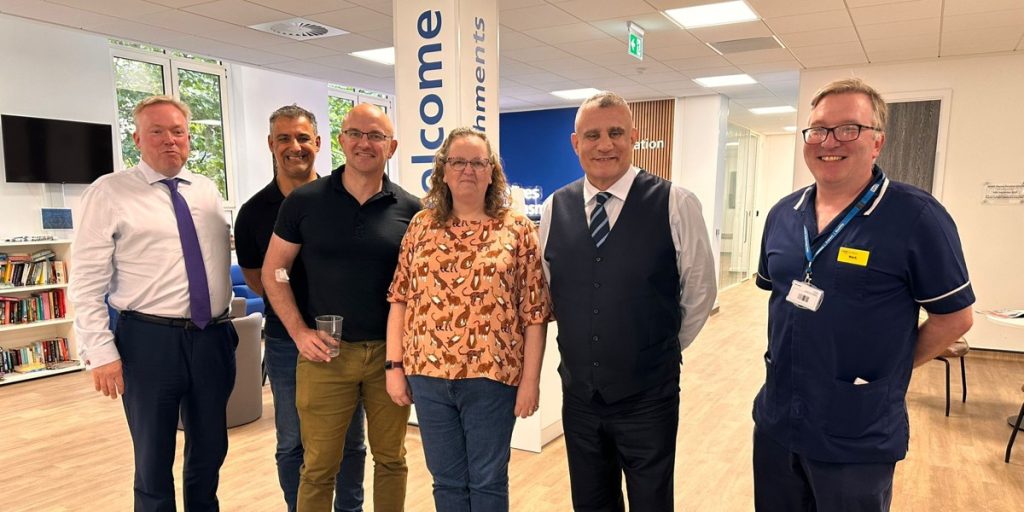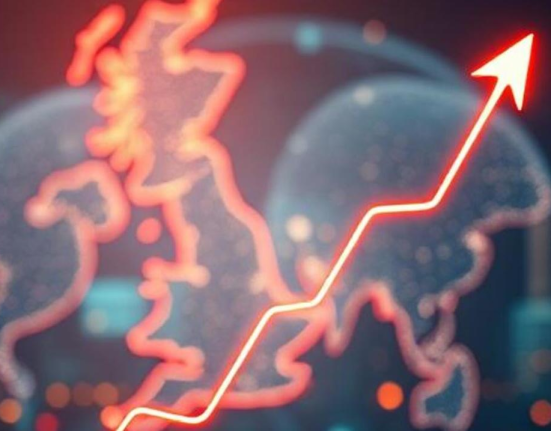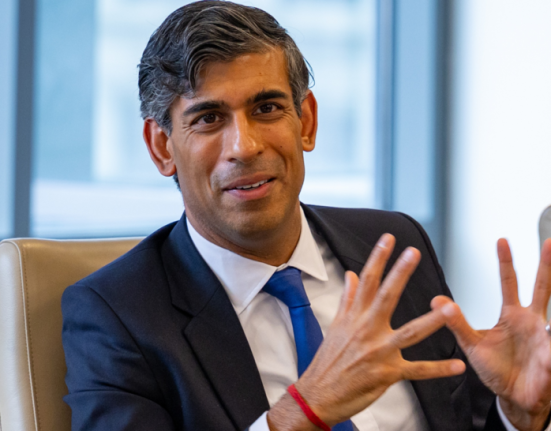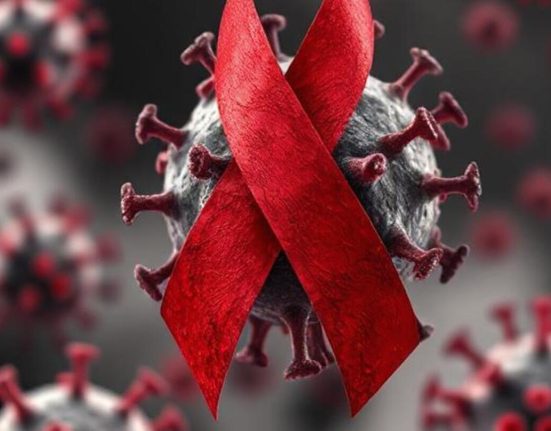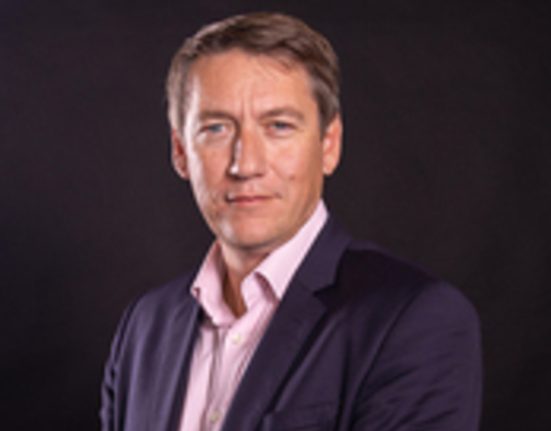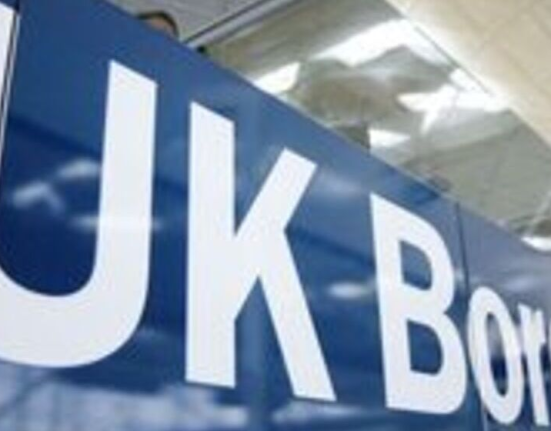Life Sciences Week: There’s more to Birmingham than meets the eye
Last month’s West Midlands Life Sciences Week fired imaginations all over the Midlands and beyond. It opened many eyes to the important scientific performance and potential of the region in ways not previously so widely understood.
The week was a thoroughly comprehensive affair and covered a lot of ground. However, one particular aspect stood out as going to the heart of the Life Sciences theme and as deserving of an extra mention.

Jewel in the West Midlands Life Sciences Week crown – plasma donors
It should be a special source of pride for West Midlanders. It’s what the NHS Blood and Transplant (NHSBT) team had to say about blood and plasma donors – their critical medical significance, and the great contribution that these West Midlands donors make to the UK and to the world.
Throughout this century, until as recently as 2021, the UK had to reply on imports for a whole category of treatments for rare diseases – plasma-derived medicines made from human donations (of both blood and concentrated plasma).
UK donors’ plasma was withdrawn from pharmaceutical use in 1998 as a precaution against “Mad Cow” disease. For 23 years its use for medicines production was prohibited. The NHS had to rely on medicines made elsewhere, mainly from US plasma.
Plasma from UK donors is now cleared for use in medicines
However, UK donors’ plasma has now (finally…) been given the green light as being as safe for medicines production as any other plasma anywhere. Ever since the medicines production ban was lifted, the NHSBT team has been working flat out to collect, test, store and process enough home-grown plasma to serve the needs of NHS patients without the need for imports.
The newly refurbished Birmingham Plasma Donor Centre in New Street is one of only three currently established in the UK – collecting over 30% of the country’s total.
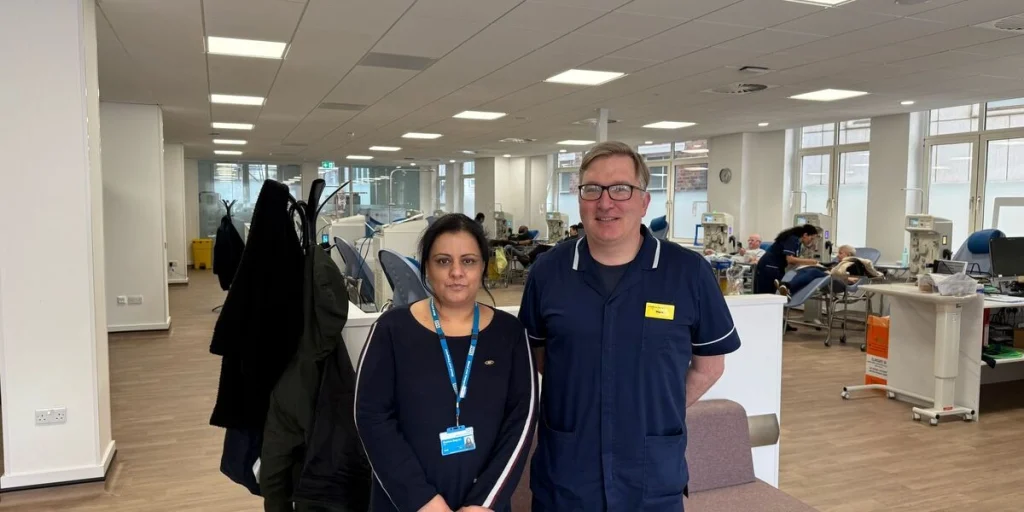
That vital plasma, from generous Brummies (and folks of the West Midlands who are not Brummies of course), goes towards making a range of essential medicines, bringing huge benefits to NHS patients.
West Midlands plasma is helping sdaves lives here – and around the world
Of course, that seems obvious. It’s a triumph, but what is not so well understood is that West Midlands plasma is now also bringing significant benefits to patients in need overseas. While the UK was totally dependent on imports, the NHS was pulling significant volumes of these precious medicines out of the global supply. The world is chronically short of plasma and the vital treatments made from it, so every item we imported was one less that would otherwise have been available for use elsewhere – and badly needed in many countries less fortunate than our own.
A splendid double whammy
Now, for every donation given in the New Street centre, that’s one unit fewer that has to be imported – and one more unit in the global stock that’s now available to make medicines for patients in other countries. It’s a really splendid double whammy!
It’ll be very interesting to hear, at West Midlands Life Sciences Week 2026, how far the NHSBT plasma-for-medicines campaign has progressed by then. From a starting point of 100% reliance on imports, less than three years ago, the NHSBT team has already taken up England’s level of self-sufficiency in one important plasma component – albumin – to above 80%. Home-grown Immunoglobulin supplies are also rising fast – delivering vital antibodies to patients suffering from immunological and neurological conditions and those undergoing treatment for cancer.
Number 61 New Street …
The need for imports of medicines made from foreign plasma is receding. It’s a source of pride for the folks at NHSBT, of course, but it also does enormous credit to the generous blood and plasma donors of the West Midlands. Who knew that such globally significant things were going on at No. 61 New Street!?
